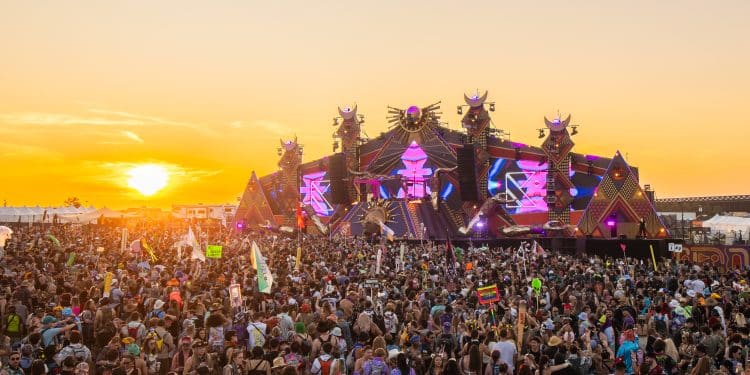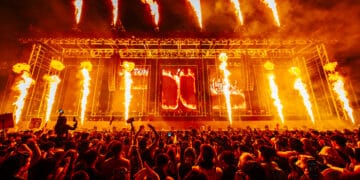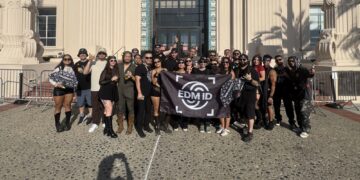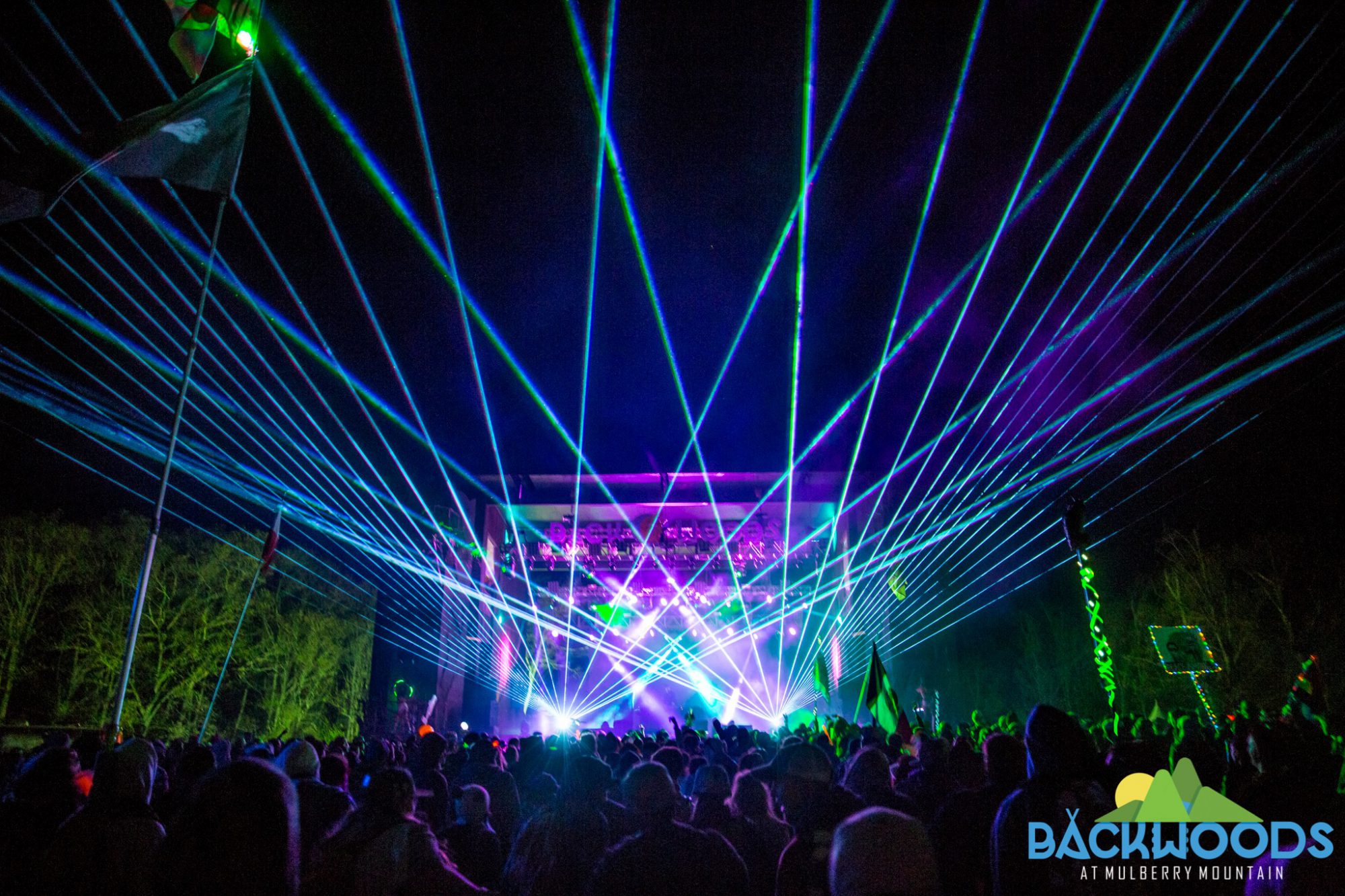After a year full of amazing releases, unreal mixes, and a new addition to his family, Lane 8 reflects on some of his favorite moments.
When looking back on 2018 it becomes clear that this was the year that Lane 8 truly took his career to the next level. The beginning of the year was marked by the release of his second album, Little By Little, which became one of our favorites of the year and set the tone for what was to come.
There were no signs of slowing down after dropping the album, as he went on to release more originals and collaborative works throughout the year. His label This Never Happened also saw substantial growth as Lane 8 unveiled new editions of the Root To Branch series and worked with artists like Avoure, Anderholm, and Khåen.
Aside from his releases, Lane 8’s name also graced the lineups of festivals like Electric Forest, Origins, and Escape: Psycho Circus while also embarking on an album tour that took him to venues around the world. Bringing his signature soundscapes along with him wherever he played, it was impossible not to get swept away and taken on a journey while witnessing his sets.
With the desire to gain some deeper insight into the world of Lane 8, we sat down with him earlier this month to chat about how he puts together his seasonal mixtapes, the progression of his label This Never Happened, and so much more. Listen to the Winter 2018 Mixtape below and read on for our final in-depth interview of the year.
Stream Lane 8’s Winter 2018 Mixtape on YouTube:
First of all, congratulations on having such a massive year. You released a new album, Little By Little, you had plenty of This Never Happened performances and festival sets, and you also released a lot of music on your label. When you look back at 2018, what are some of the things that you’re most proud of?
As we get toward the end of the year, and I have some kind of perspective on everything it’s been, what I’m in a lot of ways most proud of is how This Never Happened has grown and to see people connect in the live setting shows. But also, we started releasing music from other artists on the label and trying to make it like a good home for the music that I love that I play in my mixes and out in my shows.
I think being able to build that whole world has been the biggest thing that I’ve been excited about. And having the integration between the music and live events has been really special to see because that was the whole idea. We started to have that innovation dynamic–that marriage between music and events.
Having just caught you at DAY MVS this past weekend, something that always stands out about your sets is your ability to perfectly capture the essence of a moment through your track selection. It’s almost as if your sets evoke a unique mood depending on the environment. How do you go about crafting those musical experiences?
I think it’s a combination of only playing music that I’m quite familiar with and really excited about. So when I’m preparing for a show or for a weekend of shows, in the week leading up to it, I’m going through all my music and trying to come up with some sort of plan of attack of how I’m going to approach a certain situation. It’s having that very careful pre-selection. Now, I still make tons of mistakes, but having that experience where you can know, “Okay, this is going to work really well in this certain situation. And this will probably not work that well.”
Having that knowledge going into it helps me prepare because I’m not one of those DJs that just goes out and wings it. I like to have a plan. And that’s not to say that it’s all about completely pre-rehearsing, because if I’m wrong then I’ll switch it up, but usually I’ll have a rough idea of what the situation is going to be like.
Like DAY MVS, for example, I knew that it was going to be an outdoor setting with people in the late afternoon, early evening enjoying themselves in a beautiful scenario. So I picked music that fit that and I think I always try to do that in general. In a club, I’ll play more clubbing music versus an open-air situation.
And it’s great if people see it that way, and go on that journey and have the same experience that I’m trying to create. So I really appreciate that, and I think it comes from my own experience of those events.
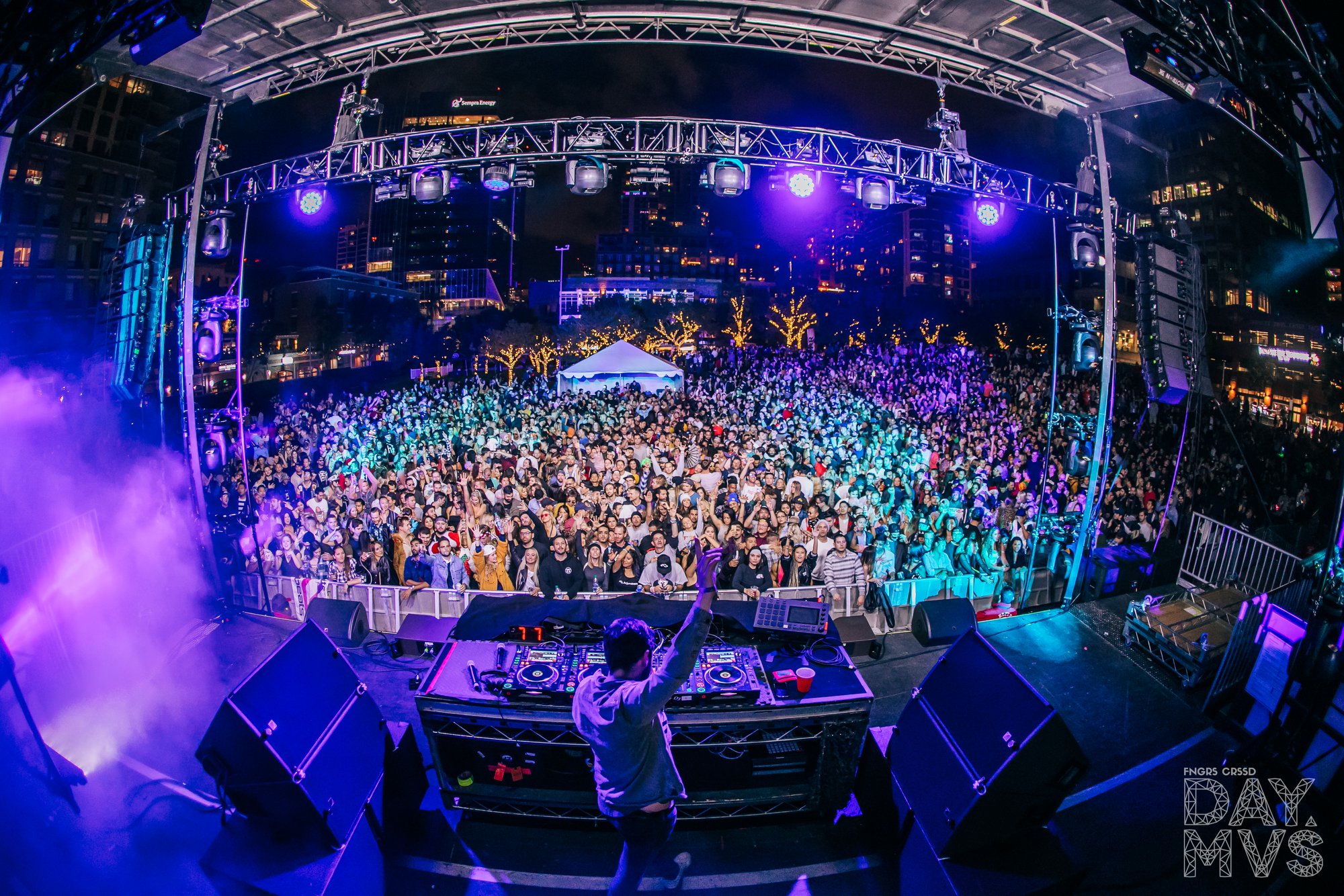
You have your seasonal mixtapes, as well, and recently released the winter edition. Do you approach these in the same way that you do with your live sets?
No, the mixtapes are different. The stuff that I play out when I’m playing in front of people on a real sound system, there’s a certain amount of technical mixing that I’m looking for. Then there are tracks that I really love but are not technically that well produced, but are things that I would put in mixtapes because it just lives online in people’s home stereos or it doesn’t really matter if it’s the mixdown isn’t perfect.
When I’m playing live, I try to play stuff that like sounds full, solid, and will move people in a certain way. And there are a lot of tracks where I love a melodic aspect of it, or it has a really cool idea and it’s not executed in a way where it would sit with the way that I play in a live setting. But the mixtapes are the perfect chance to highlight some of that music.
The other thing is, when I play out live, I’m playing a ton of my own music along with stuff that’s been released for many years, whereas with the mixtape it’s always stuff that’s either brand new or I’ve just discovered. So it’s either new to me or new to the world; there’s no repetition of past material with the mixtapes, it’s more forward-looking. And in the live shows, I try to keep those tracks that fans really want to hear, especially of mine, as I’d like to think that’s what they would want to hear.
Have you found it easier to curate the mixes over the years? And how have you narrowed down the length in time on them?
It hasn’t really gotten any easier. It’s basically the same process that it always has been. I guess, in a small way, it’s easier because more people send me music now. So I don’t have to go always hunting for it so much like I used to when I was just a complete nobody–I had to buy music online. So in that sense, it’s become easier, but the process is the same.
The range in how long the mixes are is because sometimes I haven’t come across great music in the two and a half months since the previous mix came out. That’s why I love doing it on SoundCloud and YouTube and not having a radio show where I have to have an hour or two hours.
I feel like it hasn’t happened a lot, but there have been mixes where I got through an hour or a little over an hour, and it was like, “Okay, that’s it. I don’t have any more music I’m really excited about.” So why would I play another hour of stuff that I don’t even really like that much? That explains why some of the mixes have been short while others have been longer.
My latest winter mix is over four hours, and there’s a bunch of stuff that I had to leave off just because it didn’t fit. It wasn’t the right tempo in the right key at the right moment in the mix. So that can be part of it, as well, but now I’m finding that more often than not I have so much music that I like that the mixes tend to go on for quite a while.
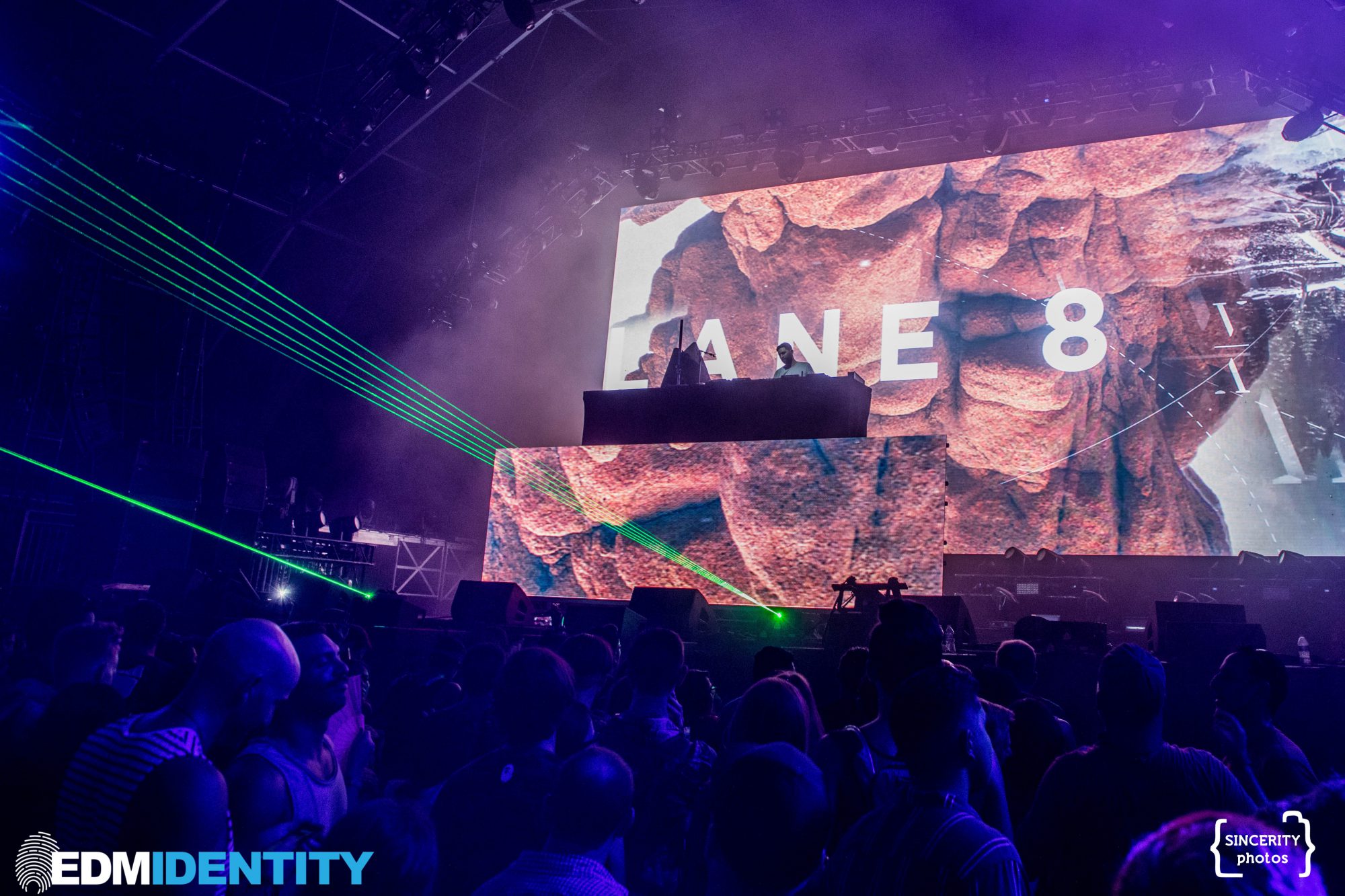
Let’s switch gears and talk about your label, This Never Happened. Each label has its own vibe and unique sound, and that’s certainly true with yours. How would you describe what you hope to express with the music that you release?
I look at the music that we’ve released, and it’s, in a way, a mirror of what I try to do when I’m making music, which is to create a marriage between the underground music that I love and something that might be more accessible to your average music fan. We focus a lot on big, thematic riffs or hooks. I hate using that buzzword, but we always try to focus on stuff that’s got a central theme that’s very strong, because I think that’s really important in music, to not have a track with six different really cool elements that are all fighting each other for attention.
I tend to like music that knows what it is and knows what the main element of the track is. I look up a lot to producers like Kölsch, for example. If you listen to a Kölsch track, there’s always one easily recognizable main element, and the track is built around that one main idea. That’s the kind of music that grabs me, and I’ve noticed over the years when I DJ, those are the kinds of tracks that audiences respond to.
As a label, that’s one of our overarching focuses–to have music that is simple. One of the hardest things to do is make music that’s simple. It’s easy to add layers and layers and layers and get this complex mess. What’s hard is to hone in on one idea that’s really good and ride it out over the course of five minutes. So if I had to choose one overarching identifier of the music that we’re interested in, it would be that.
When artists are submitting demos, is that what you’re looking for already? Or is that something that you work with them to develop over time?
Both. There have been artists that we’ve worked with where I’ve been a little bit more involved as far as trying to push them in a certain direction. And then there are other artists where they just do what they do and either you like it or you don’t. It depends what people are comfortable with. Sometimes people will send me demos and say, “Hey, I would love some critique on this so I can improve it.” In that situation, I feel comfortable giving them my opinion on what would take the track to the next level. Sometimes those tracks turned into demos that we actually signed.
Other times, with someone like Khåen, who just did a mini album from when he sent me a track, it’s usually pretty much done. He’s not looking for my suggestion on what he should do with the high hats. It’s more like, “Do you like it or not?” which is also great. It depends on the artist and what they’re looking for; some artists like to do things their own way. And then it’s just a question of whether it fits on the label or not.
So it’s a balance you have to find with each artist you have?
Yeah, it’s a personal relationship. We’re going back and forth on a lot of different music and you develop that relationship over time and figure that out. If this person sends me something, we have a whole history and a whole understanding between each other. And that informs the way that I approach my job as a label manager. In a lot of ways, it’s about dealing with people as much as about dealing with music.
When it comes to the collaborations that you’ve released with some of your artists like Anderholm and Khåen, is that the same sort of approach? How do you preserve the original vision of the track?
With those two specific ones, they were both demos that Anderholm and Khåen had sent in as half-finished ideas. I took both of those tracks from that idea stage to a finished track. So those were both very similar situations, actually. I’ve had other other collaborations that have been like starting from a blank page, like the track that I did with Kidnap for Anjunadeep last year. We got in a room together and started messing around and the track slowly started to form.
For me, personally, it’s always fun to get to get something that’s halfway there and then you can hear how you might finish it. It’s similar to being asked to do a remix; there’s already some work there and it’s about putting your own spin on it. I’ve always really enjoyed that, and it’s kind of fun. There’s certainly a lot less pressure than when you’re trying to come up with a great idea all by yourself. It’s nice to have someone hand you half the work to finish. [Laughs]
So yeah, that was fun. I really enjoyed doing both of those collaborations. And it was a great way to introduce my fanbase to both of those artists, to help support them a bit on their journey as acts on the label. I think it was great for everyone.
In addition to being an accomplished DJ, producer, and label head, you’ve got a family, as well. How do you balance the on the go lifestyle of a DJ with spending time with your wife and kids?
I guess I’m in a different situation than most DJs are, just because my wife is my tour manager and we travel together. It’s not the situation that a lot of DJs are in, where they’re leaving every weekend and saying goodbye to the family. Us working together has meant that we spend every single day, including the time when we’re working, together. So as far as my family goes, that’s great, because we get to spend a lot more time together than almost anyone else that I can imagine with any sort of office job or anyone who travels away from their family.
I don’t know how it would be if I were one of those DJs that is going off alone every weekend. I think it would be really challenging to have a family and to feel like you weren’t shortchanging either your career or your family. Big respect to anyone who pulls that off, but I don’t have to worry about that, luckily.
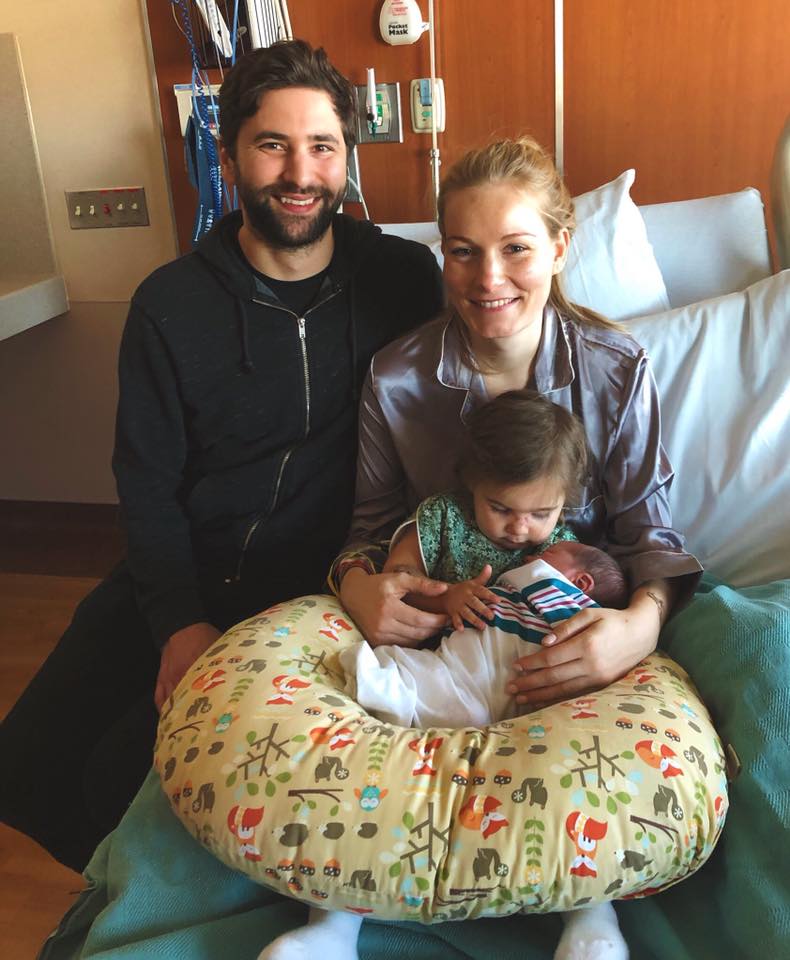
With 2018 coming to a close and 2019 on the horizon, do you have any resolutions for the new year that you can share?
I’m not big on New Year’s resolutions. I’ve been trying to run a lot, so I just did that. I don’t believe in waiting for a time to decide to do something. I think if you want to do something, just do it–and I try to live that way as much as possible. So yeah, I’m trying to get in better shape right now because traveling all the time is not the healthiest lifestyle.
I feel like that’s one of the biggest struggles, staying healthy when you’re on the road.
Now that our schedules quieted down a little bit, my not-New Year’s resolution has been to run three miles every day. I’ve been doing a decent job of that.
Do you listen to your own mixtapes while you’re running?
Ah, I usually listen to Martin Garrix or something really pumped up.
Wow, that’s not what I was expecting at all.
What else do I listen to… all kinds of stuff. If someone puts out a mix, a DJ that I like, I’ll put the mix on, but I don’t really listen. Or if I have a demo going that I’m trying to figure out what to do with it, how to take it to the next level, I’ll listen to that because sometimes I’ll get an idea if I’m running.
But I need something if I really want to push myself. I need high energy from someone like RL Grime. I was listening to the RL Grime Halloween Mix recently. That was the high octane stuff I need to get pumped up for runs.
So we’ll get some hardstyle mixes from you pretty soon then, yeah? [Laughs]
Yeah like psytrance or something.
A Lane 8 psytrance mix. I can’t wait.
I also like listening to stuff that’s super far from what I do. I listen to so much 120 BPM house music in life. I don’t need to listen to a lot more of it in my free time.
Who are some of your favorite artists that are outside of the electronic scene?
I grew up listening to Bob Dylan and the Beatles. But I love 60s and 70s rock. Pink Floyd, the Rolling Stones, and Pet Shop Boys, too, and then from more recent times, I really like Tracy Chapman. I love Elliott Smith. There’s not a huge amount of new music that I love. So if I’m listening to music that’s not a DJ mix, it’ll usually be older, from my childhood from earlier years. Or a lot of kids’ music, which I listen to a ton of these days. [Laughs]
Well, that’s all we’ve got for you–thank you for chatting. We’re super stoked to catch you at CRSSD Festival in March!
Oh yeah, it’s always nice to play there–it seems like there’s a nice following. And working with the CRSSD guys is really great. Their events are always beautifully put together. Have a great rest your day. Take care.
Follow Lane 8 on Social Media:
Website | Facebook | Twitter | Instagram | SoundCloud | YouTube



